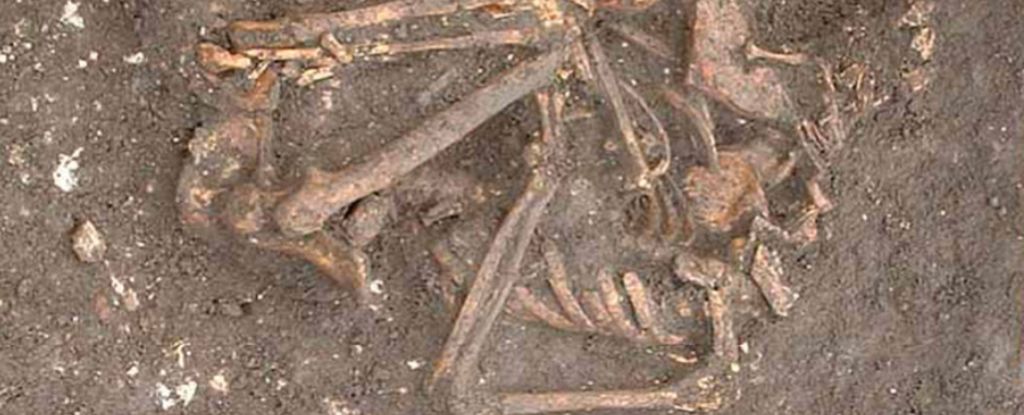
ScienceAlert reports a rare archaeological discovery: the remains of a medieval anchoress who appears to have died of a bone disease, perhaps septic arthritisor venereal syphilis, the latter possibility suggesting a penitential motivefor her eremitism. Notes ScienceAlert:
In 15th century England, a woman by the name of Lady Isabel German tucked herself away in a room of the All Saints Church near York. For 28 years, she lived in religious solitude as an ‘anchoress’, praying and contemplating God from the confines of a sealed cell.
Five hundred years later, remains thought to belong to the anchoress have been found in the recesses of the dilapidated church, buried in a curious fashion.
While experts are not absolutely certain that this body belongs to Lady German, the dating of the remains matches closely with historical records.
If archaeologists are right, Lady German’s story helps reveal a medieval practice “rarely reflected in the archaeological record.”
A life spent between four walls in solitary confinement might sound restrictive from a modern perspective, but many lay women in centuries gone volunteered for a life of isolation to avoid the social and financial dependence that came with marriage, or the lack of rights that came with being an unmarried spinster.
To some, the privacy, excusal from domestic slavery, absolution of sin, and autonomy were all seen as benefits that came with being an anchoress.
“The new study data allows us to explore the possibilities that Lady German chose to devote herself to a life of solitude as a way to remain autonomous and in control of her own destiny,” says archaeologist Lauren McIntyre from the University of Sheffield and Oxford Archaeology Limited.
“This chosen lifestyle would also have made her a highly significant figure within the local community, and she would have been viewed almost like a living prophet.”
